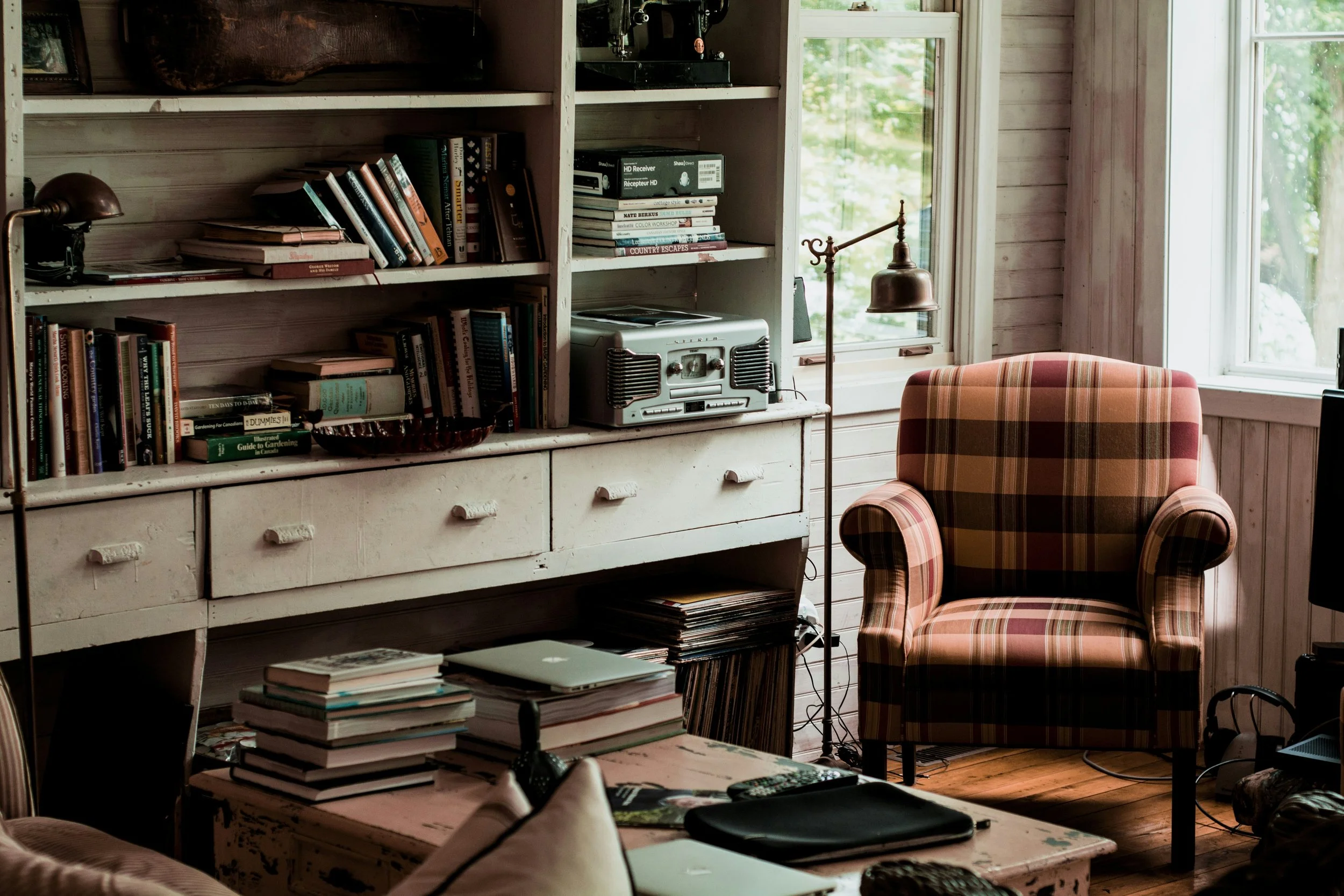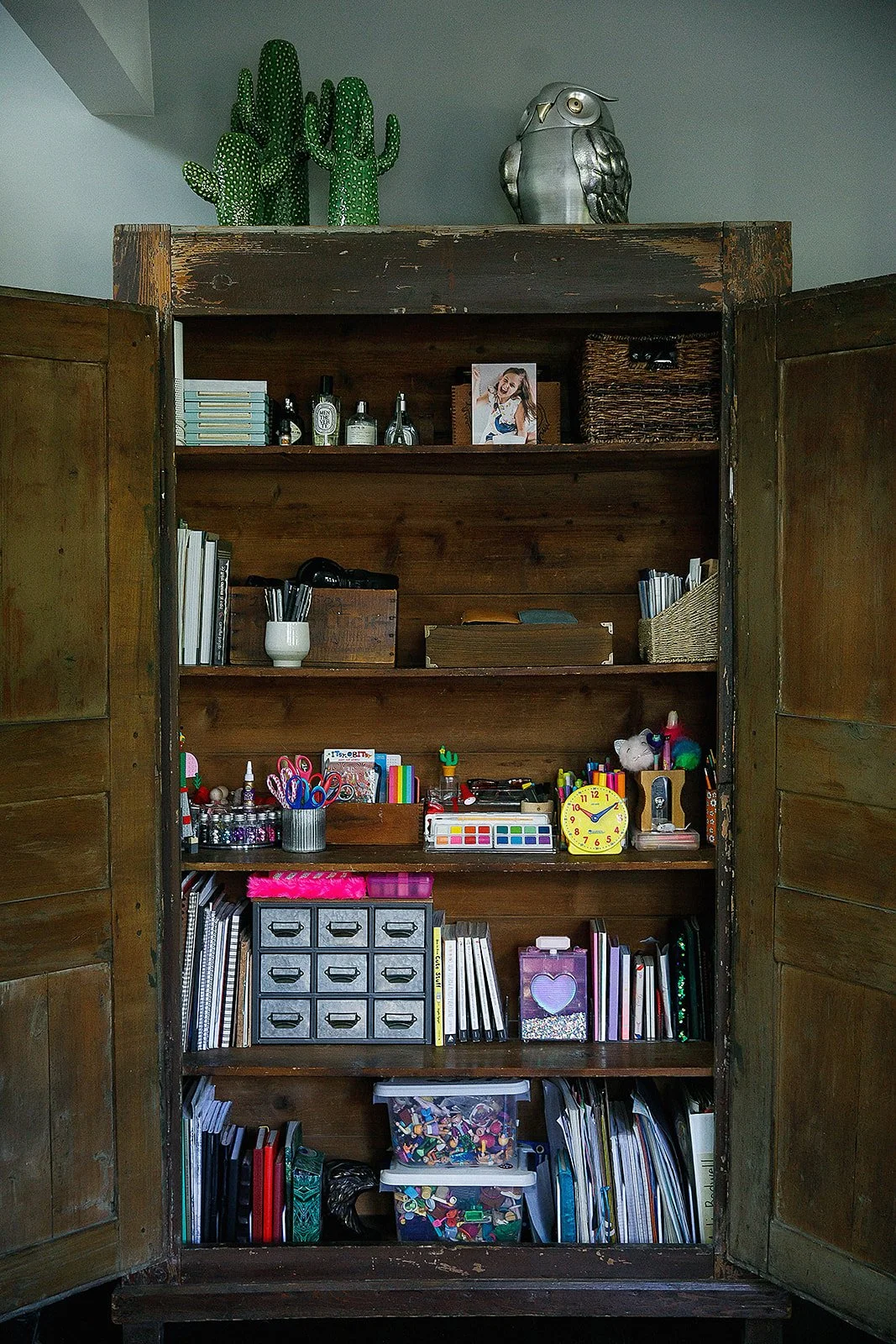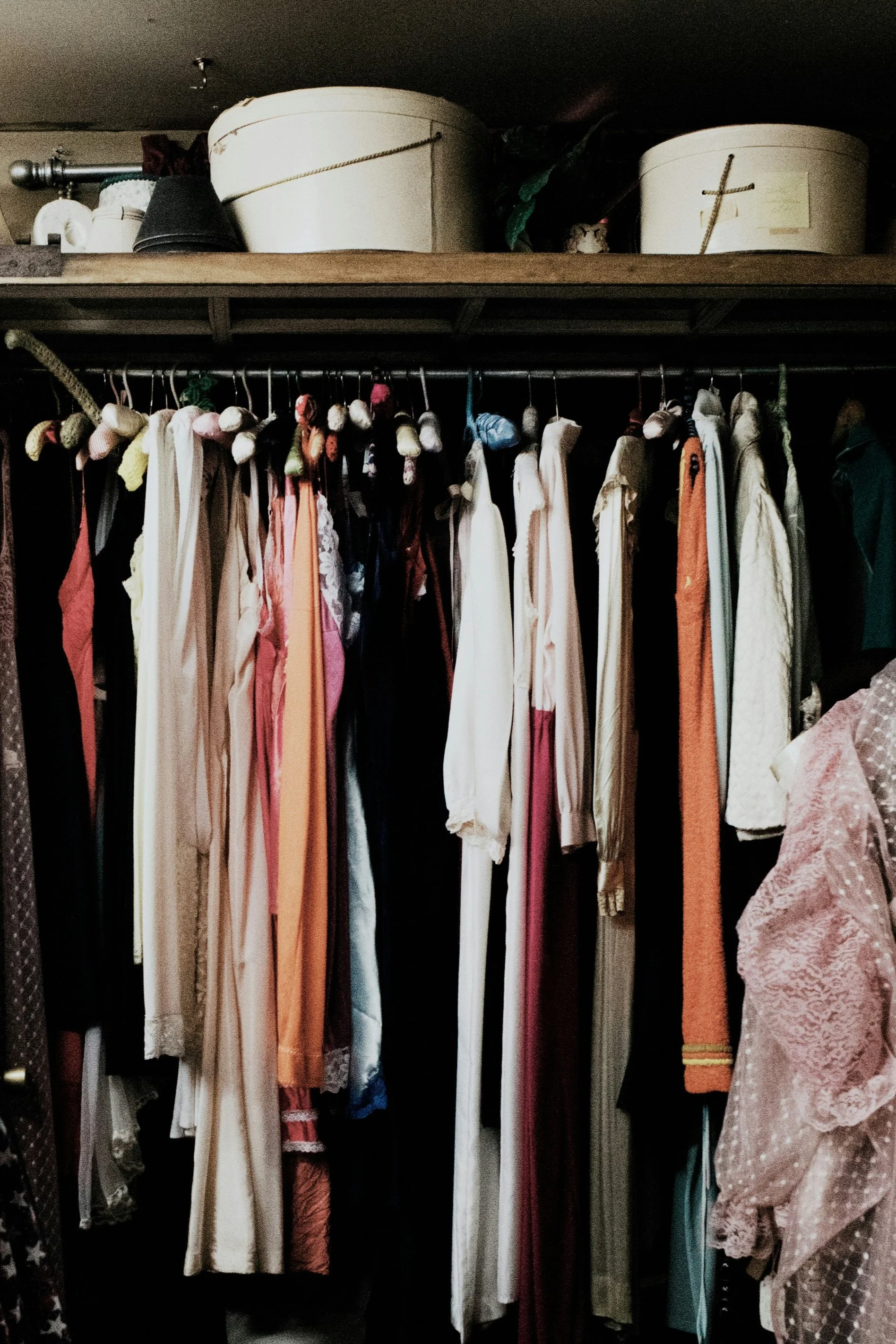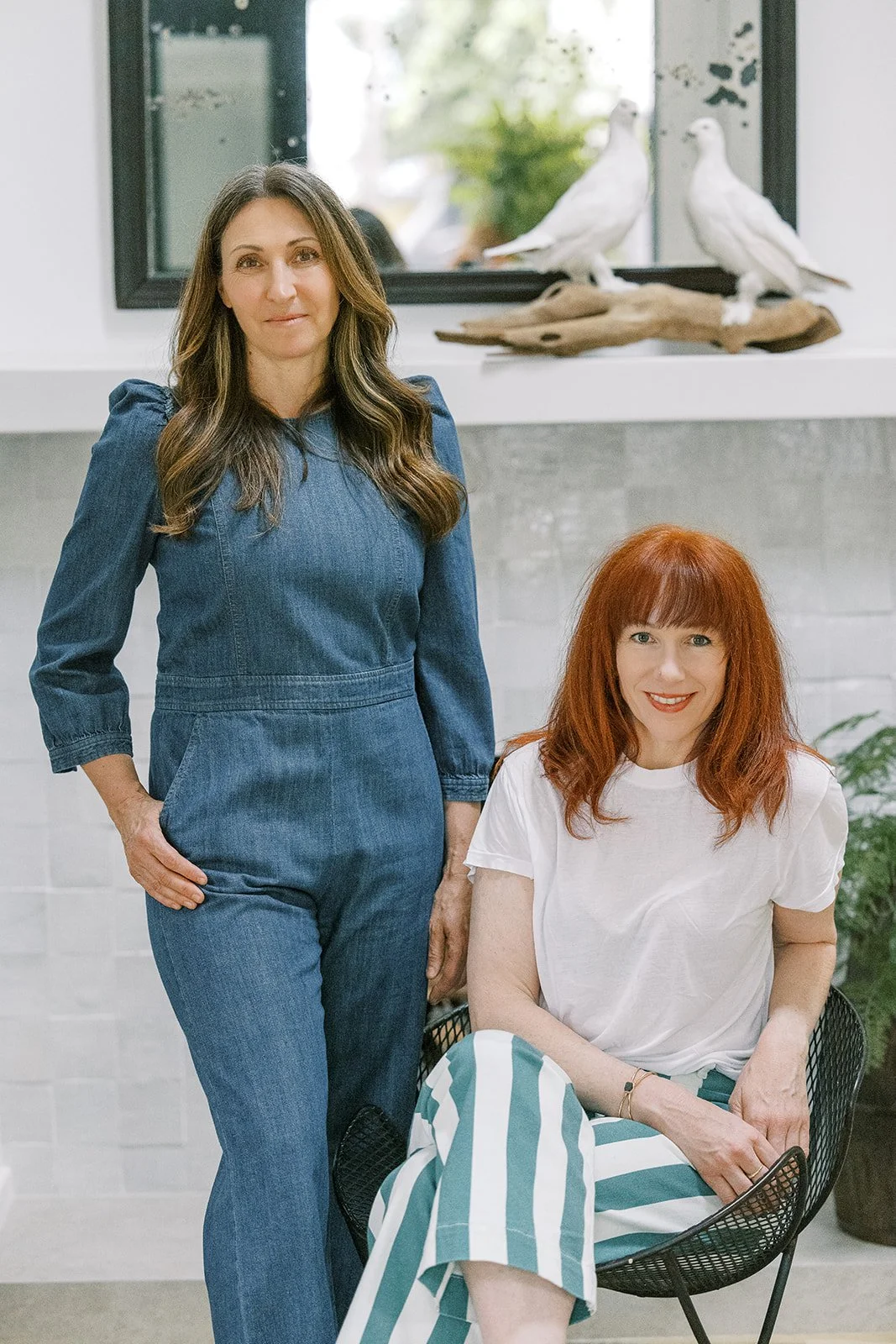Discover How Death Cleaning Is Actually For The Living — Especially For Yourself.
Death is something that most of us probably don’t want to think about.
We’re busy living our lives, rushing from one day to the next, and accumulating a lot of stuff as we go. Our belongings – clothes, gifts, coffee mugs, gadgets, etc – seem to multiply with each passing year. The longer we live in the same house or apartment, the more things we have filling up every closet or corner.
What happens to all of our stuff when we die?
That’s the question that author Margareta Magnusson takes on in her 2017 book, The Gentle Art of Swedish Death Cleaning. She proposes that older people clear their homes of clutter before they pass away to save their relatives and loved ones from having to take on the daunting task. The idea is to get rid of anything that doesn’t make you happy or that wouldn’t have value to a friend of loved one after you die.
I’ve seen homes filled with decades of clutter that daughters and sons end up having to sort through after the death of their beloved mother or father. It can feel like a Herculean task, particularly after the loss of a parent and an emotional funeral service.
When you think about your children, other relatives, or friends, is clearing your home a task you want to leave for them to do?
What will happen to all the stuff filling your home when you die? (Photo by Nick Hillier on Unsplash)
Or, like Magnusson suggests in her book, would it be better for your loved ones if you sorted through your belongings while you can?
I want you to know there are many more benefits to this idea and process of “Swedish death cleaning” than just saving your loved ones from having to do it.
Here are 3 of the biggest advantages to decluttering and considering where your belongings should go after you die.
You Will Enjoy Your Home More
Clutter takes up space. When you give away or donate a lot of the clutter, you will have more space in your home.
Your home will be easier to navigate, which becomes more important as you age. If you need a mobility aid such as a cane, walker, or wheelchair, having clear pathways around your house is crucial for your safety.
Trimming down the number of things you have can make it easier to find what you need when you need it.
When you have fewer things, it’s also easier to find items when you’re looking for them. You won’t waste time searching through closets, boxes, or drawers that are overflowing with stuff.
You Will Enjoy Your Life More
Have you ever wanted to invite a friend or family member to your home but stopped yourself because you felt like it was too messy?
Imagine being able to have a neighbor over for an impromptu afternoon tea or coffee for a chat and not worrying about the clutter. Wouldn’t that be nice?
As we age, social isolation grows and is associated with a higher risk for depression, heart disease, and cognitive decline. Meaningful human connections are even more important to both mental and physical wellness later in life.
It’s easier to nurture those connections when you can invite people over to your home, but it’s also easier when you’re free of the stress and anxiety caused by clutter.
Seeing stacks of unsorted mail or boxes filled with things you meant to look at months ago is stressful and can cause low self-esteem. Getting rid of this type of clutter can eliminate a source of stress, so you can feel calmer in your home.
You Will Take a Trip Down Memory Lane
Sorting through your belongings will give you a chance to rediscover mementos from your past.
If you have a lot of stuff, chances are high that much of it can be donated to others or recycled. But in your sorting and cleaning, you’ll probably come across things like old photos, ticket stubs, cards, or letters from your past that you want to preserve. You could make scrapbooks or photo albums to store these items and share them with loved ones.
Reading through old journals to decide what to keep or what to throw away is a nice way to revisit past memories. (Photo by Julia Joppien on Unsplash)
The process of decluttering could help you revisit lovely memories. You might find items you want to give to a niece or nephew, or you might recall a touching story you might have not yet shared with your children.
This is probably my favorite benefit of decluttering and going through all the extra stuff. The memories you find make the time well worth it.
7 Tips to Make It Easier
I know that even the idea of something called “death cleaning” takes some getting used to, and it’s not easy. But I do have some tips to help make your decluttering journey a bit more manageable.
Clothing can be an easy place to begin. (Photo by Adrienne Leonard on Unsplash)
Begin with something that holds no sentimental value. Clothing is usually an easy place to start. If you choose to sort through and pare down your clothes first, commit to just that. For example, try not to open your closet and look through the boxes piled on the floor. If you choose to begin with clothes, just work on the clothes first. This is a simpler, less complicated way to get started.
Don’t rush. It’s OK to take a bit of time and not get everything done in one weekend or one week.
Consider whether you have any embarrassing belongings. If any items you leave behind would reveal an embarrassing secret you’d rather your family NOT know, then this is your chance to dispose of those items.
Would any family or friends like to receive any of your belongings? Maybe your nephew is into vintage photography, and you have a camera that’s been in your attic for 25 years. You could consider giving the camera to your nephew, so he could enjoy using it. This is a great opportunity to have conversations with friends and loved ones and find out if they would be interested in anything you’re giving away.
Are there any items you could have digitized or preserved in a more useful way? If you have old VHS home movies, maybe you could have them transferred to digital format, so your family can easily view them.
Save the sentimental stuff for last. Maybe photos or books will be the most difficult for you to go through or get rid of. Save those for the last items you sort and declutter.
If something truly means a lot to you, keep it. Don’t feel ashamed of keeping a box of birthday and anniversary cards from your husband or letters from your children. If you’re able to sort through and either donate or recycle some things and decide to keep others, that’s ok.
Calling In the Right Help
Sometimes it helps to have, well, a little help.
If you have a close friend or family member you trust to support you through the decluttering process, call them, and let them know you’d love their help.
I’ve discovered that sometimes it can be easier to have help from someone who can be objective. If you’d be more comfortable with assistance from a compassionate person you don’t already have a close relationship with, then a professional organizer might be right for you.
If you’re ready to start a decluttering journey, we can help. We can walk you through all the steps in a gentle, supportive way.
You can reach out to us here to get more details about how to begin.
Designing With Less, Atlanta Professional Organizers





